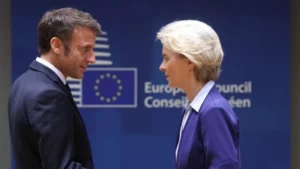The EU-Mercosul/Mercosur trade negotiations showcase significant geopolitical and economic dynamics.
Spain’s Prime Minister, Pedro Sánchez, and Germany’s Chancellor, Olaf Scholz, support the deal, contrasting with French President Emmanuel Macron’s opposition.
Macron’s stance reflects domestic concerns over importing cheaper food, impacting France’s agricultural sector.
Spain and Germany see the deal as vital for economic and geopolitical reasons, highlighting the diverse interests within the EU.
Despite France‘s resistance, the European Commission continues negotiating with Mercosul, signaling a commitment to global trade partnerships.

This deal symbolizes a strategic move by the EU to strengthen ties in South America, countering China’s growing influence in the region.
The EU’s interest in Mercosul is partly a response to China’s investments there, as Europe seeks to assert its presence in a multipolar world.
Globally, these negotiations occur amid rising trade tensions and a shift toward protectionism.
A successful agreement would mark a stance for multilateralism and open markets, opposing the trend of economic nationalism.
Regionally, it could redefine South America’s trade relationships, historically centered around North American and Asian markets.
In addition, this realignment could reshape regional economies and global trade strategies.
Internationally, the EU-Mercosul deal could become a benchmark for future agreements, especially in integrating environmental and agricultural standards.
Its outcome might influence other regions negotiating similar deals, shaping global trade policy.
The negotiations go beyond immediate economic benefits, embodying strategic, geopolitical, and policy considerations.
They represent the complex interplay of commerce, politics, and diplomacy in today’s world.
In short, the EU-Mercosul talks thus hold significant implications for global, regional, and national levels, indicating the nuanced nature of modern trade agreements.

